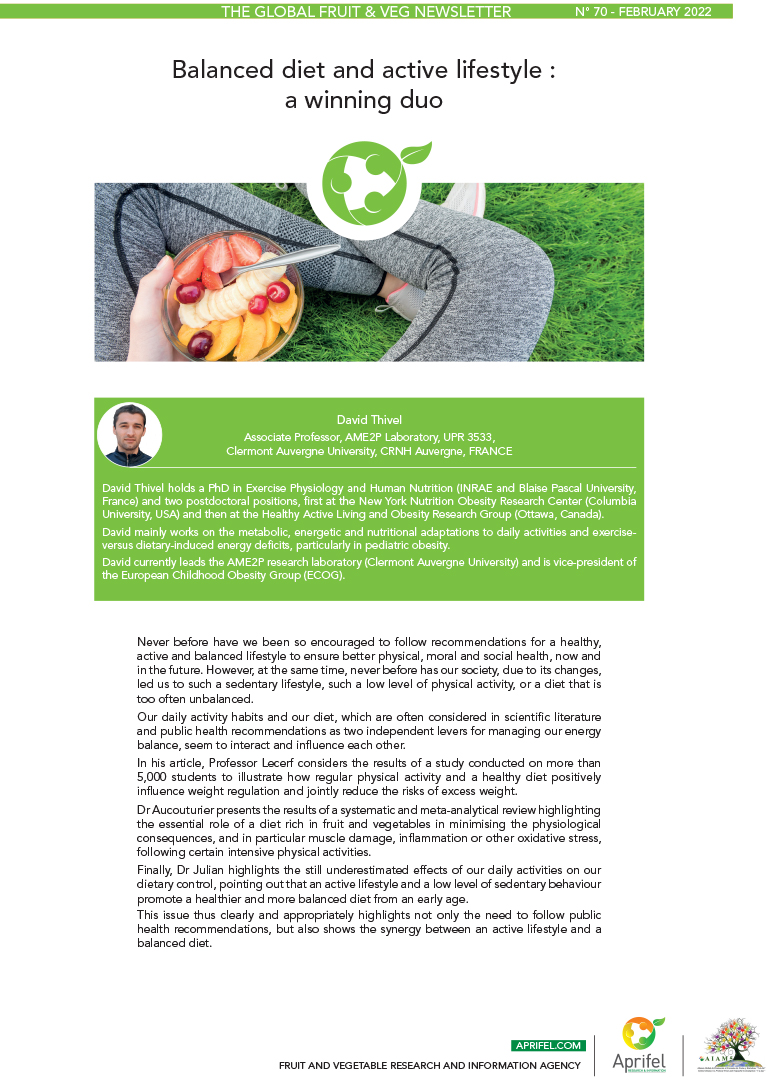Balanced diet and active lifestyle : a winning duo
Editorial

Never before have we been so encouraged to follow recommendations for a healthy, active and balanced lifestyle to ensure better physical, moral and social health, now and in the future. However, at the same time, never before has our society, due to its changes, led us to such a sedentary lifestyle, such a low level of physical activity, or a diet that is too often unbalanced.
Our daily activity habits and our diet, which are often considered in scientific literature and public health recommendations as two independent levers for managing our energy balance, seem to interact and influence each other.
- In his article, Professor Lecerf considers the results of a study conducted on more than 5,000 students to illustrate how regular physical activity and a healthy diet positively influence weight regulation and jointly reduce the risks of excess weight.
- Dr Aucouturier presents the results of a systematic and meta-analytical review highlighting the essential role of a diet rich in fruit and vegetables in minimising the physiological consequences, and in particular muscle damage, inflammation or other oxidative stress, following certain intensive physical activities.
- Finally, Dr Julian highlights the still underestimated effects of our daily activities on our dietary control, pointing out that an active lifestyle and a low level of sedentary behaviour promote a healthier and more balanced diet from an early age.
The issue thus clearly and appropriately highlights not only the need to follow public health recommendations, but also shows the synergy between an active lifestyle and a balanced diet.
- David Thivel holds a PhD in Exercise Physiology and Human Nutrition (INRAE and Blaise Pascal University, France) and two postdoctoral positions, first at the New York Nutrition Obesity Research Center (Columbia University, USA) and then at the Healthy Active Living and Obesity Research Group (Ottawa, Canada).
- David mainly works on the metabolic, energetic and nutritional adaptations to daily activities and exercise-versus dietary-induced energy deficits, particularly in pediatric obesity.
- David currently leads the AME2P research laboratory (Clermont Auvergne University) and is vice-president of the European Childhood Obesity Group (ECOG).
